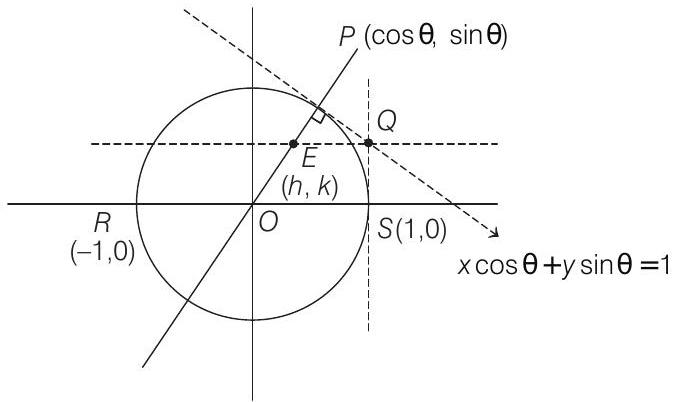Circle 3 Question 10
10. Let
(a)
(b)
(c)
(d)
(2016 Adv.)
Show Answer
Answer:
Correct Answer: 10.
Solution:
- Given,
Here, equation of the tangent at

Intersecting with
Normal at
Let their point of intersection be
When
When






